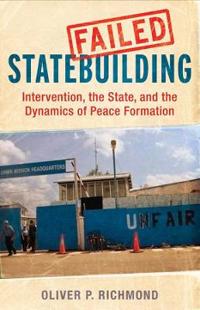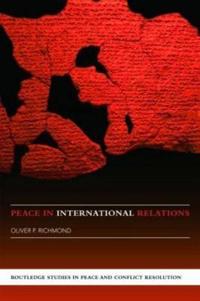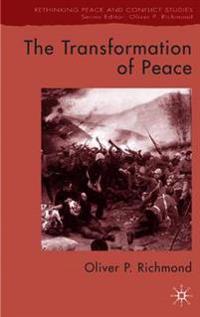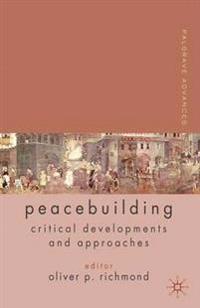Failed Statebuilding (Inbunden)
avOliver Richmond
ISBN: 9780300175318 - UTGIVEN: 2014-10Western struggles--and failures--to create functioning states in countries such as Iraq or Afghanistan have inspired questions about whether statebuilding projects are at all viable, or whether they make the lives of their intended beneficiaries better or worse. In this groundbreaking book, Oliver R[...]
Peace in International Relations (Storpocket)
avOliver Richmond
ISBN: 9780415394208 - UTGIVEN: 200805This book examines the way in which peace is conceptualized in IR theory, a topic which has until now been largely overlooked. The volume explores the way peace has been implicitly conceptualized within the different strands of IR theory, and in the policy world as exemplified through practices in [...]
Peace (Pocket)
avOliver P. Richmond
ISBN: 9780199656004 - UTGIVEN: 2014-12The concept of peace has always attracted radical thought, action, and practices. It has been taken to mean merely an absence of overt violence or war, but in the contemporary era it is often used interchangeably with 'peacemaking', 'peacebuilding', 'conflict resolution', and 'statebuilding'. The mo[...]
The Transformation of Peace (Häftad)
avOliver P. Richmond
ISBN: 9780230554078 - UTGIVEN: 200707This book examines the transformation of the discourse and praxis of peace, from its early beginnings in the literature on war and power, to the development of intellectual and theoretical discourses of peace. This is contrasted with the development of practical approaches to peace, including intern[...]
Palgrave Advances in Peacebuilding (Pocket)
avOliver P. (EDT) Richmond
ISBN: 9780230555235 - UTGIVEN: 2010-02Critical thinking has prospered in the interdisciplinary study of peacebuilding over the last decade or so, despite (and perhaps because of) the certainties and systems offered by the comfortable, liberal-realist mainstream praxis. As the liberal state system, and the assumptions of the 'internation[...]







